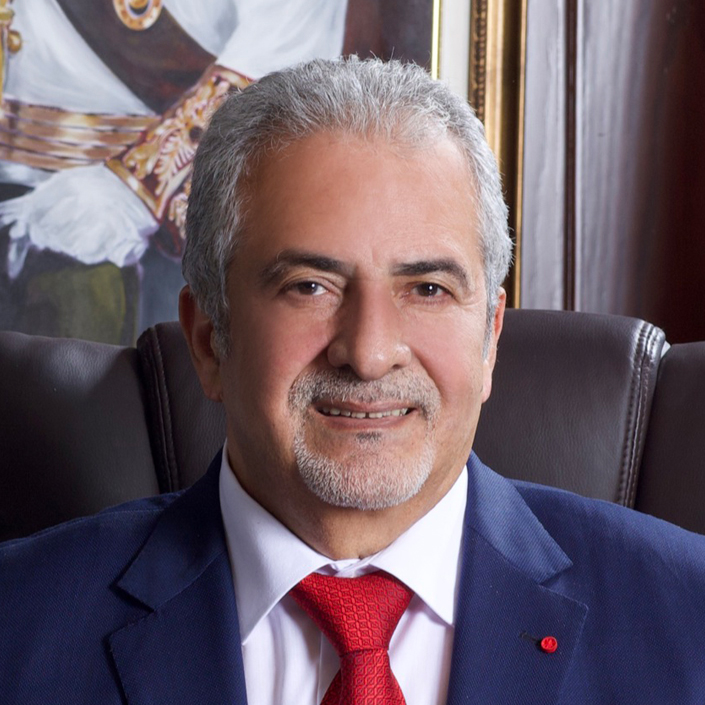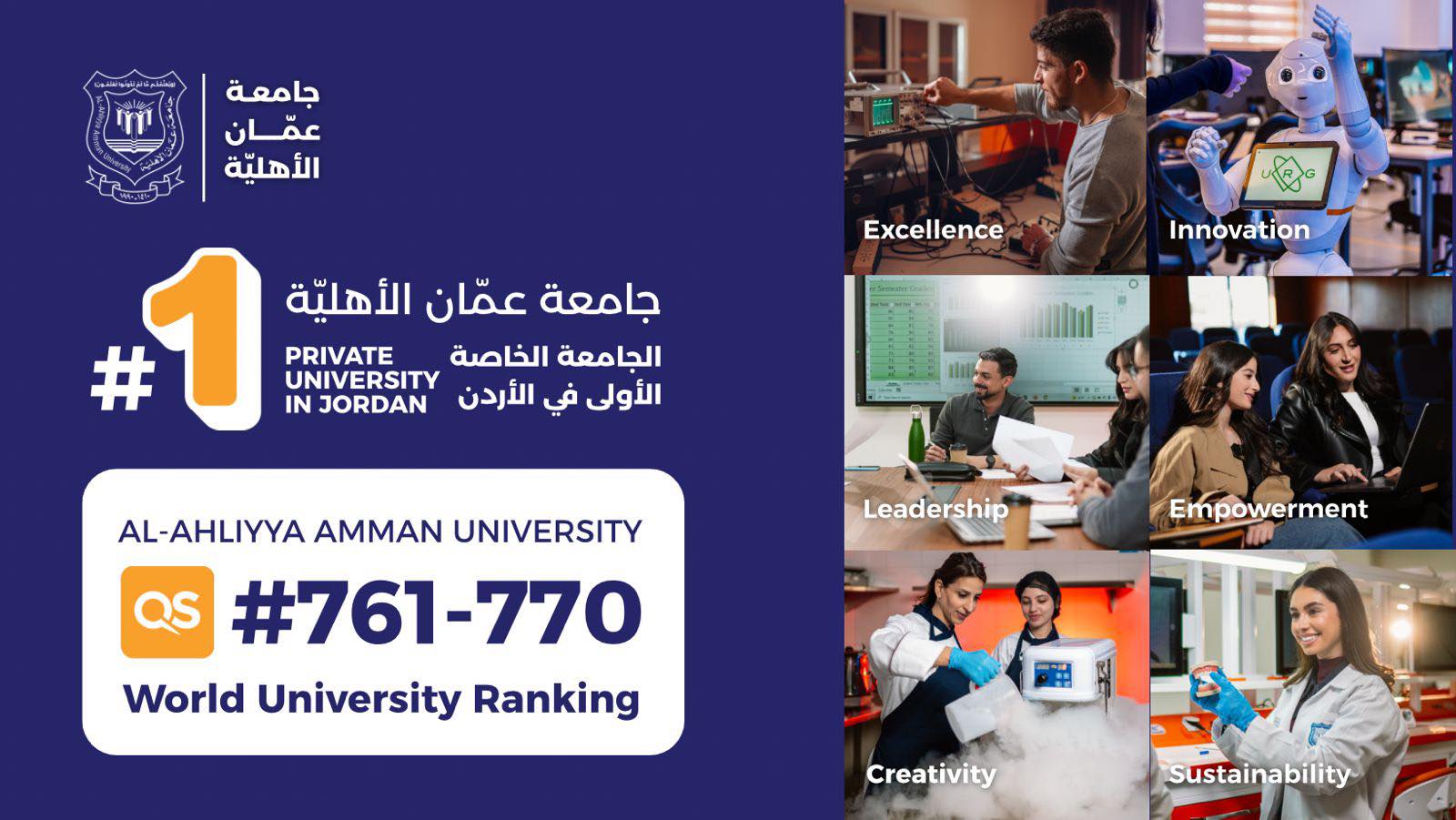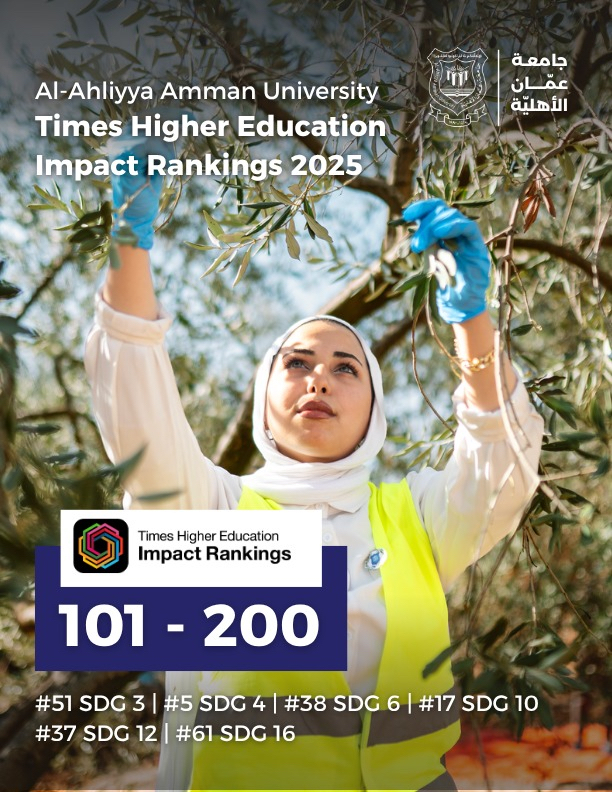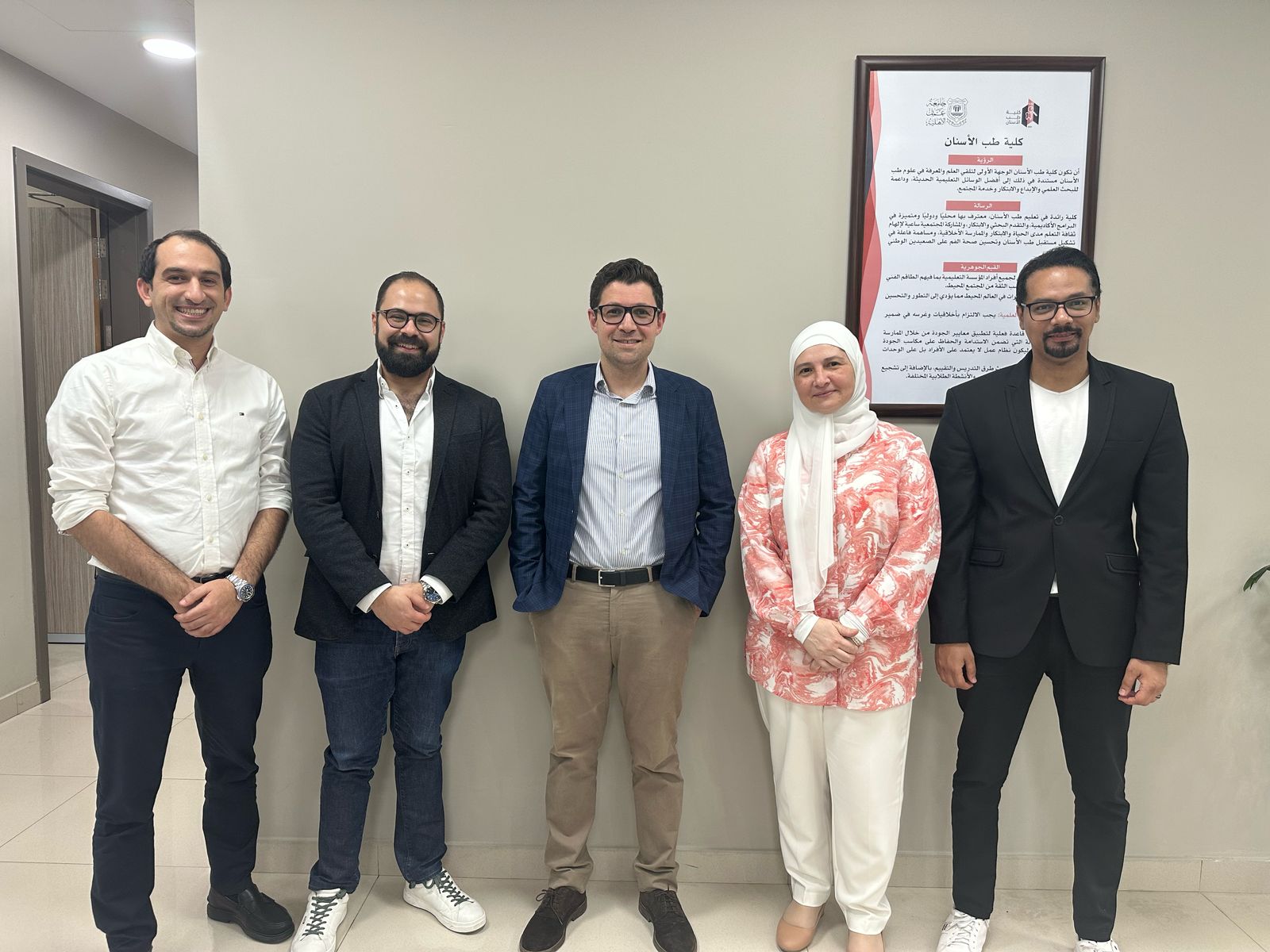Al-Ahliyya Amman University

20 June 2023
Dr. Sari Hamdan praises the University of Sharjah, highlights the development of Al Ahliyya Amman University, and reveals an Arab university ranking
Professor Dr. Sari Hamdan, the president of Al Ahliyya Amman University and a member of the Executive Council of the Association of Arab Universities, praised the success of the Third Conference of Arab and Russian Universities, held at the University of Sharjah, considering it a rich conference in terms of its contributions and recommendations. He expressed his gratitude to the University of Sharjah and its president, Sheikh Dr. Sultan bin Ahmed Al Qasimi.
This came in an interview he conducted recently with Sharjah TV after the conclusion of the conference, in the program "Guest of Sharjah," presented by colleague Alia Al Mansouri.
Dr. Hamdan, during the interview, pointed out the importance of global university rankings (Shanghai, QS, and Times), revealing the establishment of an Arab university ranking that has been worked on for the past two years. So far, 122 Arab universities have joined this ranking.
He added that this ranking is based on four dimensions:
Education and learning (evaluated at 30%)
Scientific research (evaluated at 30%)
Entrepreneurship and innovation (evaluated at 20%)
International relations and community service (evaluated at 20%)
He explained that nine performance indicators have been defined for each dimension. The goal is to foster competition among universities to improve the quality of education and its outcomes, develop scientific research, encourage innovation and inventions, and serve the community.
Dr. Hamdan also emphasized the importance of scientific research and the need to publish professors' research in SCOPUS within the Q1/Q2 level and others. He mentioned that QS ranking assigns a 40% evaluation for scientific research, while the Arab ranking assigns 30%. He also highlighted that 5% of the universities' budget in Jordan is allocated to scientific research and scholarships.
He stated that Russian universities have their own ranking, and Arab universities can join it, and likewise, Russian universities can join the Arab ranking. He pointed out that it is the mission of Arab universities to open up to international universities, including Russian universities, as Moscow University has been established for 270 years.
He further mentioned that several agreements have been signed between the participating universities in the conference to collaborate in exchanging experiences, research, and all other areas of cooperation. He recalled that a cooperation agreement was signed between Al Ahliyya Amman University and the University of Sharjah (which is an excellent university and ranked first among universities in the United Arab Emirates according to international rankings).
When asked about the importance of accreditations and rankings, Dr. Hamdan said that the significance of accreditations and rankings for universities lies in opening up avenues for challenges and competition between universities, which affects the universities' performance in attracting students and preparing and qualifying graduates with high efficiency, providing them with better opportunities in the job market.
For example, a graduate from Harvard University or MIT or any other highly ranked American, European, or foreign university according to global rankings is different from a graduate of a lower-ranked or unaccredited institution. The reputation and quality of education associated with prestigious universities can enhance the employability and career prospects of graduates.
Dr. Hamdan emphasized that accreditations and rankings serve as indicators of the level of excellence and quality that a university provides. They provide a benchmark for evaluating educational standards, research output, innovation, and community engagement. By participating in rankings and striving for accreditation, universities are motivated to improve their performance and enhance their reputation.
Furthermore, rankings and accreditations can attract international students and faculty members. High-ranking universities often have a diverse student body and faculty from various countries, fostering a multicultural learning environment and promoting global collaboration.
In the context of the Arab university ranking, Dr. Hamdan highlighted the focus on entrepreneurship and innovation as a key dimension. This reflects the importance of fostering an entrepreneurial mindset among students and promoting innovation in various fields. By emphasizing entrepreneurship, universities can contribute to economic growth and job creation, as well as encourage students to develop their own ventures and contribute to the development of their communities.
In conclusion, the interview with Dr. Sari Hamdan shed light on the significance of university rankings and accreditations. These evaluations provide a framework for universities to measure their performance, improve their offerings, and enhance their international visibility. The establishment of an Arab university ranking aims to foster healthy competition among institutions in the Arab region, promoting excellence in education, research, innovation, and community service. By participating in rankings and obtaining accreditations, universities can attract talented students, faculty, and resources, contributing to their overall growth and impact.
And in terms of international accreditations, such as American and European accreditations for various programs and specialties, like the American ABET accreditation for engineering and information technology, AACSB accreditation for business disciplines, ASIC accreditation for arts, and others, as well as IIMP accreditation for marketing, etc.
Regarding rankings, they are global and classify universities based on various criteria that encompass different aspects of academic, research, innovative, and inventive work, as well as the performance of graduates and community service.
It was mentioned that the most important three global rankings are Shanghai, QS, and Times.
Regarding the Arab Private Institutions Association for Higher Education (of which I am the Secretary-General), it focuses on the affairs of private universities and educational institutions. The association works on developing performance and exchanging experiences among its members. Private universities are among the most compliant with standards and strive to achieve advanced positions in development and rankings.
In the United States and Europe, private universities are the ones that occupy advanced global positions. Of course, this does not diminish the importance of government universities and their role and excellence, but competition for improvement and exchange of successful experiences between government and private universities is necessary.
In our association, meetings are not only attended by presidents or representatives of universities and educational institutions but also by heads and members of boards of directors for member universities.
It's worth noting that private universities, to some extent, have profitability. There are laws regulating them, and most of their budgets are allocated to development and updating.
Regarding Al Ahliyya Amman University as the first private university in Jordan, its programs, specialties, and development, the university's president shed light on the matter by saying:
Al Ahliyya Amman University was established in 1989 and welcomed students in 1990 as the first private university in Jordan, founded by the late Dr. Ahmad Al-Horani. The university currently includes 12 faculties, in addition to a newly opened faculty, the Culinary Arts and Hospitality Management College. Also, preparations are underway for the opening of the Faculty of Dentistry, which will admit students in the upcoming academic year. The Faculty has received accreditation from the Higher Education Council. The cost of equipping the college with modern facilities exceeds 23 million dollars. Private universities do generate profits, but these funds are allocated for development, updates, student services, faculty, and the local community.
The mentioned colleges offer 33 undergraduate programs (so far), 18 master's programs, and 4 higher diploma programs. We aim to open a doctoral program in the Faculty of Law next year. The university currently has around 7,000 male and female students, with 56% of them being international students. We have professors from various Arab and foreign nationalities alongside Jordanian professors. The university's capacity is approximately 13,000 students.
Additionally, I would like to mention that we have important colleges, specialties, and centers at the university. Some of them include the College of Agricultural Technology with its market-driven specializations. We have the Artificial Intelligence and Clinical Psychology (a rare specialization) programs. There is also the Financial Technology program, for which we have a simulation center for the financial market, connected locally and internationally. (In fact, this was an idea from the Chairman of the Board of Directors, Dr. Maher Al-Horani).
Moreover, we have a simulation room for the courtroom at the Faculty of Law for practical training of students.
"As there are several important centers at Amman University, such as the Pharmaceutical and Diagnostic Research Center, where a patent for a drug was obtained in collaboration with the University of Bradford (UK). Currently, work is underway on a cancer drug in collaboration with the Hussein Cancer Center through ongoing research.
We also have the Cybersecurity Center (affiliated with the United States) that offers training courses in this field. Additionally, we have entered into an agreement with Harvard University for their business incubator, supervised by them, and another agreement with MIT for graduating students with inventions and innovations in various disciplines.
By the way, we did not face any difficulty during the COVID-19 pandemic in transitioning to online education because we already had the Hurani E-Learning Center established years before the pandemic.
Dr. Sari Hamdan concludes by saying: We continuously evaluate scientific research, and we have 300 faculty members, and none of them does not publish research. The renewal of employment contracts for professors depends on scientific research with a minimum of two published research papers per year in SCOPUS within the Q1/Q2 level, etc. Research professors receive generous rewards for their research.
Personally, as the university president, I support every successful dean or center director with equipment, laboratories, or scientific collaborations, and we spare no incentives to encourage researchers and distinguished individuals."





